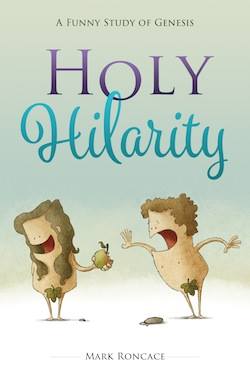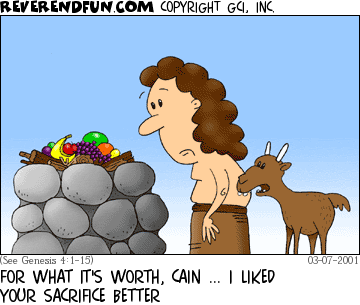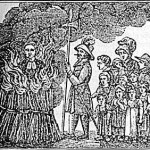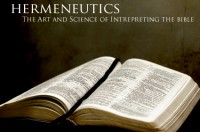 I am convinced that you must read the Bible with a half smile on your lips and a glint of humor in your eyes if you are going to properly understand some texts. I have written about this previously, especially in regard to understanding the parables of Jesus.
I am convinced that you must read the Bible with a half smile on your lips and a glint of humor in your eyes if you are going to properly understand some texts. I have written about this previously, especially in regard to understanding the parables of Jesus.
So I was thrilled to recently read Holy Hilarity: A Funny Story of Genesis by Mark Roncace. I was especially interested in this book due to my Podcast studies on Genesis 1-4.
Mark Roncace provides great insight into some of the humorous elements of the stories in Genesis. People didn’t television in the days these stories were written, and so they told stories. And these stories in Genesis (like most stories in the Bible, those in Judges, Esther, Jonah, etc.) contain drama, romance, and even humor.
If Genesis was a Twitter feed or a series of Facebook posts, it would generate a lot of people commenting with “LOL” and “SMH.”
Roncace shows that we need to stop taking the Bible so seriously, and sometimes just laugh at the hilarity and absurdity of the stories it contains. This is not to mock the Bible, but to read it as it was intended. Life is funny, and life with God is even more funny. Yes, there is much pain and hardship, but humor helps us cope with the hurt. The sooner we learn to see humor in the Bible, the better.
Laughter is not only the best medicine, it also is a good hermeneutical tool.
Holy Hilarity by Roncace is like a commentary on Genesis, but with an emphasis on showing the humor in the stories. Some of the humor is “imported” into the text by Roncace, so that he provides a modern-day humorous retelling of the story (e.g., saying that Noah didn’t have power tools to build the ark, p. 24), but it is still a creative way of telling the stories of Genesis.
One of my Seminary professors (Howard Hendricks) used to say that it is sin to bore people with the Bible. I agree. The Bible is endlessly fascinating, and full of intrigue, insight, and humor. Books like Holy Hilarity help us break out of the box of reading the Bible with straight faces, so that we can see the truth in the text.
If you want to look at Genesis in a new light, get a copy of this book so that you can laugh and learn.







 The crucifixion and resurrection of Jesus forms the foundation for everything I write on this blog. Everything.
The crucifixion and resurrection of Jesus forms the foundation for everything I write on this blog. Everything.
 When people seek to defend the idea that God is violent “because the Bible says so,” what they are really doing is allowing the violent portrayals of God in the Bible to override and trump the loving and merciful portrayals of God elsewhere in Scripture, even when both portrayals are talking about the same historical event.
When people seek to defend the idea that God is violent “because the Bible says so,” what they are really doing is allowing the violent portrayals of God in the Bible to override and trump the loving and merciful portrayals of God elsewhere in Scripture, even when both portrayals are talking about the same historical event. If a basic rule of hermeneutics is that the simpler and clearer texts should override the more difficult and troubling texts, and if Jesus Christ is the image of the invisible God so that He can say “if you have seen Me, you have seen the Father,” why do we choose to let the more troubling, difficult, and violent texts override and trump the loving, merciful, and Christlike texts?
If a basic rule of hermeneutics is that the simpler and clearer texts should override the more difficult and troubling texts, and if Jesus Christ is the image of the invisible God so that He can say “if you have seen Me, you have seen the Father,” why do we choose to let the more troubling, difficult, and violent texts override and trump the loving, merciful, and Christlike texts? How can a God who says "Love your enemies" (Matthew 5:44) be the same God who instructs His people in the Old Testament to kill their enemies?
How can a God who says "Love your enemies" (Matthew 5:44) be the same God who instructs His people in the Old Testament to kill their enemies?

 I’m beginning to scare myself.
I’m beginning to scare myself. “What doctrines?” you ask?
“What doctrines?” you ask? Here is my current list of doctrines which I am questioning, and which might cause some to label me as a heretic:
Here is my current list of doctrines which I am questioning, and which might cause some to label me as a heretic:
 There is a tendency in many Christian circles to think that if a particular theological viewpoint can quote a lot of Scripture, it must be right.
There is a tendency in many Christian circles to think that if a particular theological viewpoint can quote a lot of Scripture, it must be right.

